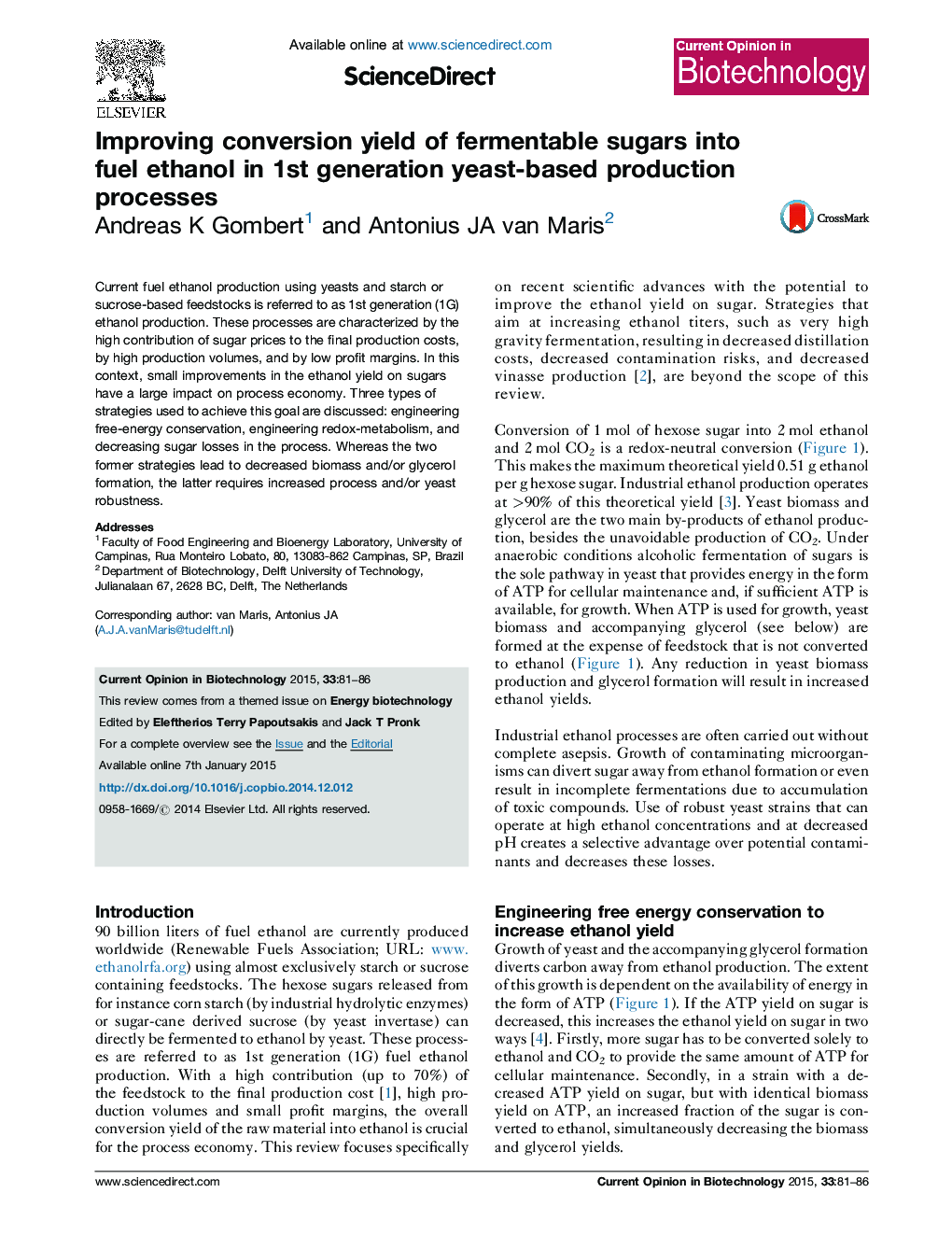| Article ID | Journal | Published Year | Pages | File Type |
|---|---|---|---|---|
| 15607 | Current Opinion in Biotechnology | 2015 | 6 Pages |
•Opportunities to increase the ethanol yield in 1st generation processes.•Strategies for reduction of glycerol formation gain industrial interest.•Engineering free-energy conservation can increase the ethanol yield.•Improved process robustness through exploration of biodiversity.•Increased understanding and genetic accessibility of wild and industrial yeast strains.
Current fuel ethanol production using yeasts and starch or sucrose-based feedstocks is referred to as 1st generation (1G) ethanol production. These processes are characterized by the high contribution of sugar prices to the final production costs, by high production volumes, and by low profit margins. In this context, small improvements in the ethanol yield on sugars have a large impact on process economy. Three types of strategies used to achieve this goal are discussed: engineering free-energy conservation, engineering redox-metabolism, and decreasing sugar losses in the process. Whereas the two former strategies lead to decreased biomass and/or glycerol formation, the latter requires increased process and/or yeast robustness.
Graphical abstractFigure optionsDownload full-size imageDownload high-quality image (99 K)Download as PowerPoint slide
